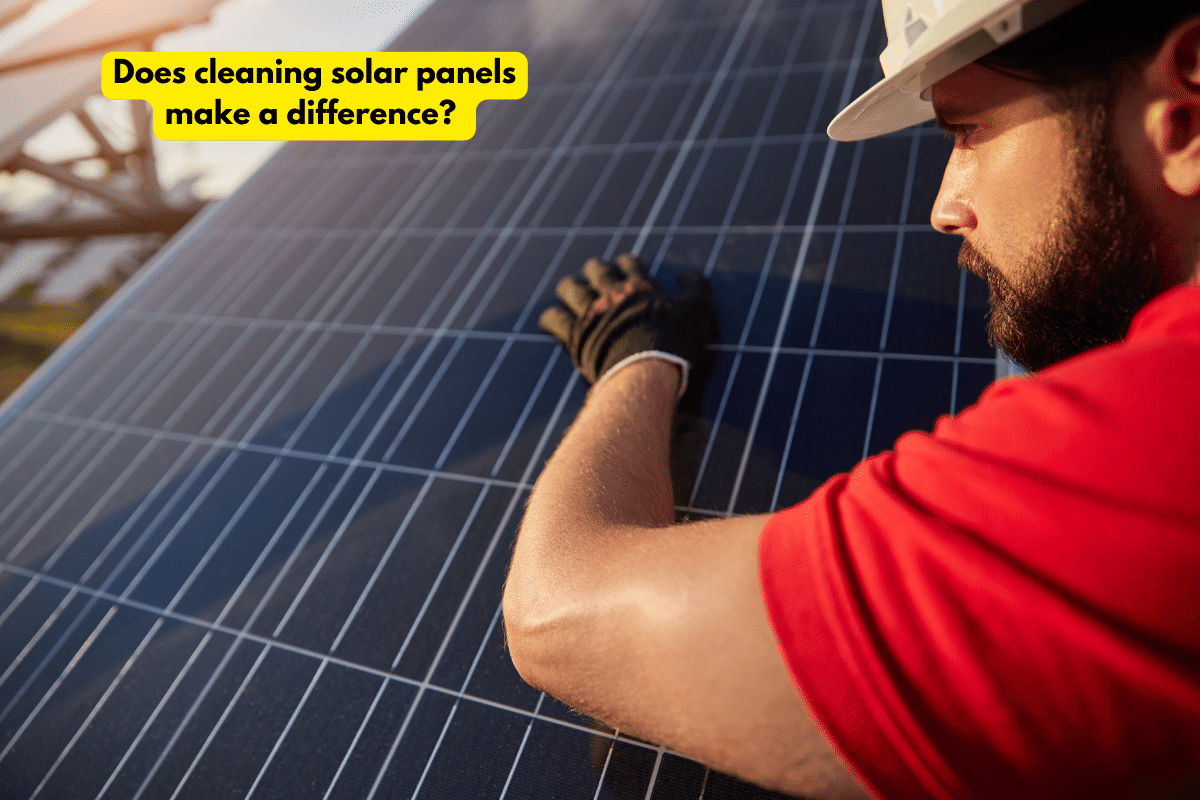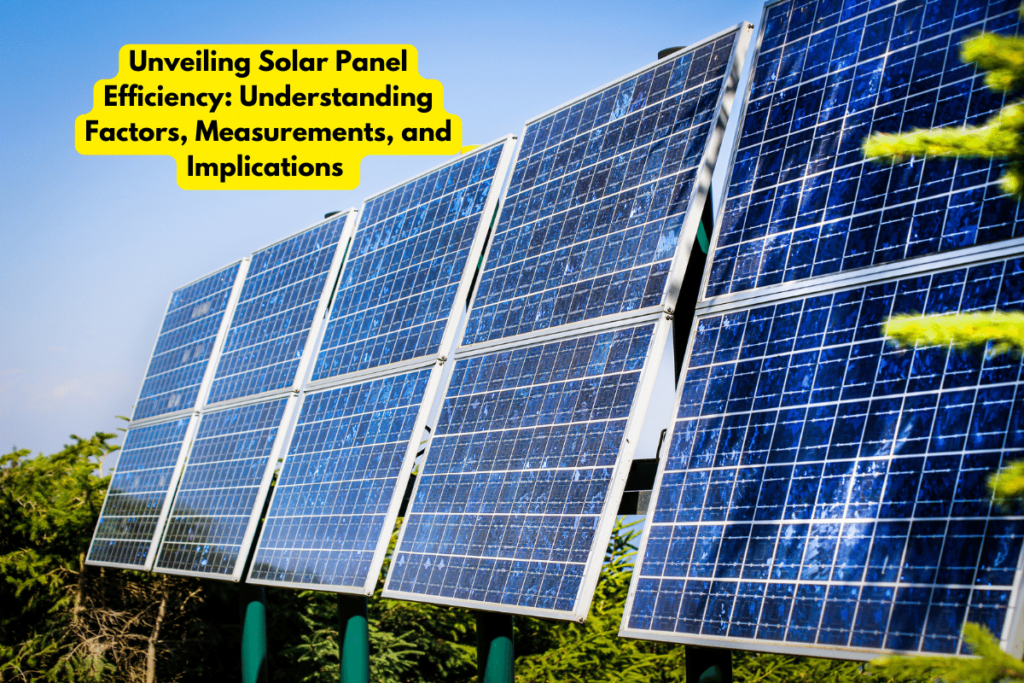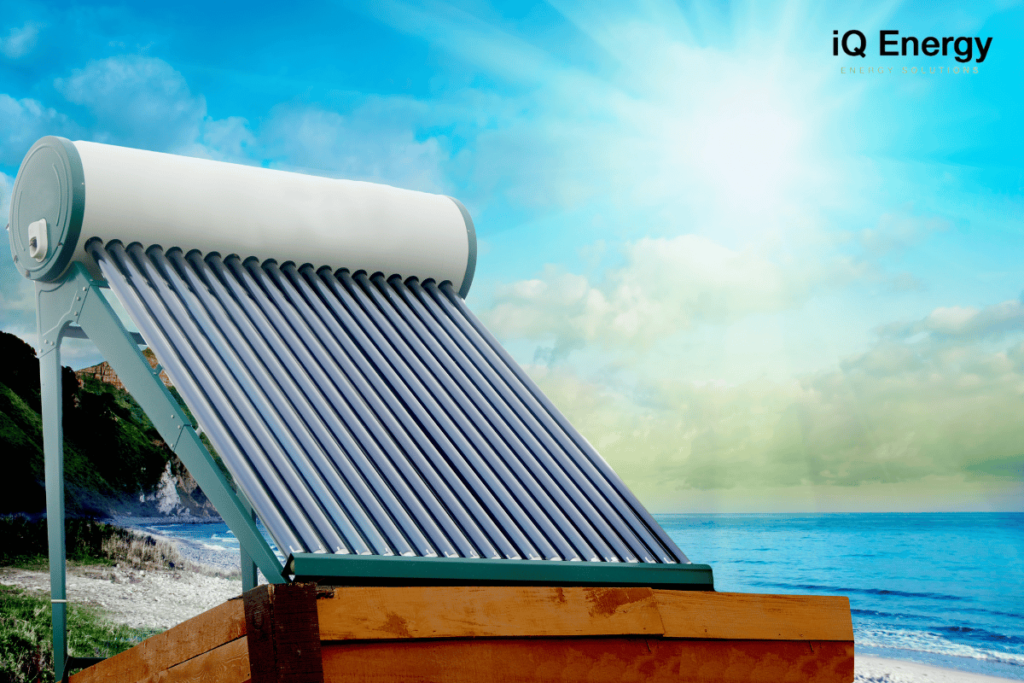
Solar panels have emerged as one of the most permanent and sustainable sources of renewable energy harnessing sunlight to generate electricity. But to maintain optimum performance and efficiency it’s important for you to keep your solar panels clean. You must know that solar panel cleaning is a very important part of maintenance to ensure optimum efficiency and energy production. With time solar panels accumulate dirt dust and pollen which can hinder your sunlight absorption and reduce energy output. You must know that regular cleaning removes all the contaminants allowing the panels to capture more sunlight and even operate at peak performance. By maintaining clean panels solar system owners like you can optimize your energy production and maximize return on investment.
Factors Influencing Solar Panel Cleanliness
Environmental Factors:
Dust and debris can accumulate on your solar panels creating a barrier which blocks sunlight from reaching the photovoltaic cells. It reduces the panel’s ability to convert sunlight into electricity. Furthermore environmental factors like pollen and bird droppings also worsen the problem leading to additional soiling and efficiency losses. It is very important for you to address all these factors for regular cleaning.
Geographic Location:
Areas with dry and arid climates are more prone to dust accumulation while regions with high pollen levels might experience increased soiling due to seasons. Some seasonal variations like heavy rainfall or snowfall can impact the cleanliness of your solar panels. You need to understand all these factors to develop appropriate cleaning schedules.
Panel Orientation and Tilt Angle:
The orientation and tilt angle of your solar panels also influence the susceptibility to dust accumulation. Panels which are installed at flat angles or facing upwards might accumulate more dust and debris as compared to the ones installed at steeper angles or facing downwards.
Understanding the Impact of Dirt and Debris
Reduction in Sunlight Absorption:
dust particles and other contaminants form a layer on your panel surface blocking the solar radiation from reaching the photovoltaic cells underneath. This obstructs the panel’s ability to convert sunlight into electricity resulting in decreased energy performance. As a result the dirt panels operate at minimum efficiency levels and might fail to meet the energy production requirements
Potential Hot Spots:
Uneven Soiling on your solar panels can create hotspots where some areas of the panel receive more sunlight as compared to others. This imbalance can lead to localized heating and efficiency losses. By maintaining clean panels you can mitigate the formation of hotspots and even ensure university production across the entire panel array.
Long-Term Effects:
Besides immediate efficiency losses, dirt and debris accumulation can have a long term impact on your solar panel performance and durability with time contaminants might cause corrosion and potential damage to your panel surfaces. It can compromise the structural integrity of the panels and reduce the lifespan. So you need to know that regular cleaning improves efficiency and also protects the panels from corrosion and deterioration extending the operational life.
Studies and Research on Cleaning Effects
Scientific Studies Evaluating the Impact of Cleaning on Solar Panel Performance
Studies have been conducted to understand the impact of cleaning on solar panel performance. You need to know that these studies analyze different factors like soiling rates, energy output before and after cleaning and the effectiveness of different cleaning methods. By quantifying the energy efficiency gains associated with cleaning the experts provide your valuable insight into the importance of regular maintenance for optimizing solar panel efficiency.
Quantifying Efficiency Gains
One common approach used in research studies is to measure the energy output of solar panels before and after cleaning. By comparing the energy production levels under identical conditions you can quantify the efficiency gains linked with cleaning. The studies generally include monitoring the solar panel installations over a long time to understand the long term effects of the cleaning on performance and energy yield.
Cleaning Methods and Techniques
Manual Cleaning:
it’s a traditional method for improving dirt and debris from your solar panels. It includes using water mild soap and soft brushes or sponges to gently scrub the panel surfaces. Manual cleaning is suitable for you if you’re a small installation and also allows for perfect Control over the cleaning process.
Automated Cleaning Systems:
the automated cleaning systems offer a more efficient and hands free approach to solar panel maintenance. The robotic cleaners equipped with brushes can automatically traverse the panel array removing dirt and debris without human intervention. The sprinkler systems use water jets to rinse off the panel surfaces while cleaning coatings incorporate hydrophobic systems that repel the dirt and water. The automated solutions are perfect for large scale solar installations.
Considerations for DIY Cleaning vs. Professional Services
When choosing between DIY and professional services you need to consider different factors like the cost, convenience and effectiveness. DIY might be suitable for small installations or if you are comfortable with manual labor. But professional cleaning is your best bet if you want thorough and effective maintenance.
Frequency and Timing of Cleaning
General Guidelines for Cleaning Frequency:
you need to determine the appropriate cleaning frequently depending on different factors like environmental conditions panel orientation and soiling rates. There is no one-size-fits-all approach here, general guidelines such as cleaning solar panels at least quarterly or semi-annually.
Seasonal Considerations
Can greatly impact the cleanliness requirements of our solar panels. Dry seasons are basically characterized by low rainfall and increased dust levels which might necessitate more frequent cleaning to remove the accumulated dirt and debris. At the same time pollen seasons can contribute towards soiling especially in areas with abundant vegetation. Monitoring panel performance during the seasons is important to determine the appropriate timing for cleaning and ensure consistent energy production.
Monitoring Performance:
Regular monitoring of your panel performance is really important for identifying efficiency losses or reduced output due to soiling. Monitoring the systems can keep a tab on energy production levels and compare them to expected values based on weather conditions and panel specifications. By proactively addressing efficiency losses you can maintain optimum performance maximize energy yield
Safety Precautions and Best Practices
Safety Considerations:
when cleaning solar panels safety should be your top priority. Working at heights pose major risks of falls and injury especially on rooftop installation. Furthermore, electrical hazards exist because of the presence of live wiring and electrical components. You need to follow the safety protocols and use appropriate personal protective equipment.
Using Non-Abrasive Cleaning Materials:
To prevent damage to the panel surfaces it’s important for you to use non abrasive cleaning materials and techniques. Soft brushes, sponges or microfiber clothes are suitable to remove dirt and debris without scratching the glass surface. You need to know that abrasive materials or harsh chemicals should be avoided as they can compromise the integrity of your solar panels and reduce the efficiency with time.
Following Manufacturer Recommendations:
The manufacturers often provide guidelines and recommendations for cleaning and maintenance to ensure the safe and effective operation of software solar panels. You must follow them for cleaning solutions and techniques.
Cost-Benefit Analysis of Cleaning
Assessing the Costs of Cleaning:
The cost of cleaning solar panels includes labor equipment and maintenance expenses. The labor cost will depend on the cleaning frequency and the panel accessibility. Equipment cost that include the tools like brushes sponges and water hoses besides safety gear.
Calculating the Benefits:
Despite the costs linked with cleaning the benefits might outweigh the expenses in terms of increased energy production and the long term efficiency. Clean solar panels capture a lot of sunlight and operate at higher efficiency levels and it results in great energy yield besides cost savings with time.
Return on Investment:
Evaluating the financial impact of regular cleaning generally includes the ROI based on the expenses and benefits with time. Some of the factors include energy savings, increased efficiency and extended panel lifespan which contributes towards the overall ROI of your cleaning. No doubt the upfront expenses might seem prohibitive but the long term benefits of the improved performance and reduced maintenance outweigh the initial investment.
Environmental Impact and Sustainability
Balancing Energy Savings with Water Usage:
No doubt cleaning solar panels offer energy savings and benefits water usage must be considered to balance environmental impact and sustainability. The water intensive cleaning methods like high pressure washing may consume major amounts of water especially in regions facing water scarcity. You reduce the water usage you can check out alternative techniques like low pressure washing or rain water harvesting.
Eco-Friendly Cleaning Solutions:
It can further improve your chance of sustainability of solar panel maintenance practices. Biodegradable soaps or detergents are environmentally safe Alternatives to your harsh chemicals reducing pollution and runoff into your soil. You must know that the low pressure washing machine techniques conserve water while effectively removing all dirt and debris from the panel surfaces.
So above all you need to know that maintaining clean solar panels is important for maximizing energy production, optimizing efficiency and prolonging the lifespan of your solar installations. Safety precautions, non abrasive cleaning materials and following the manufacturer recommendations is really important for safe and effective maintenance practices. It is very important for you to calculate the ROI of the cleaning healths and solar system owners focus on maintenance activities and making informed decisions.



